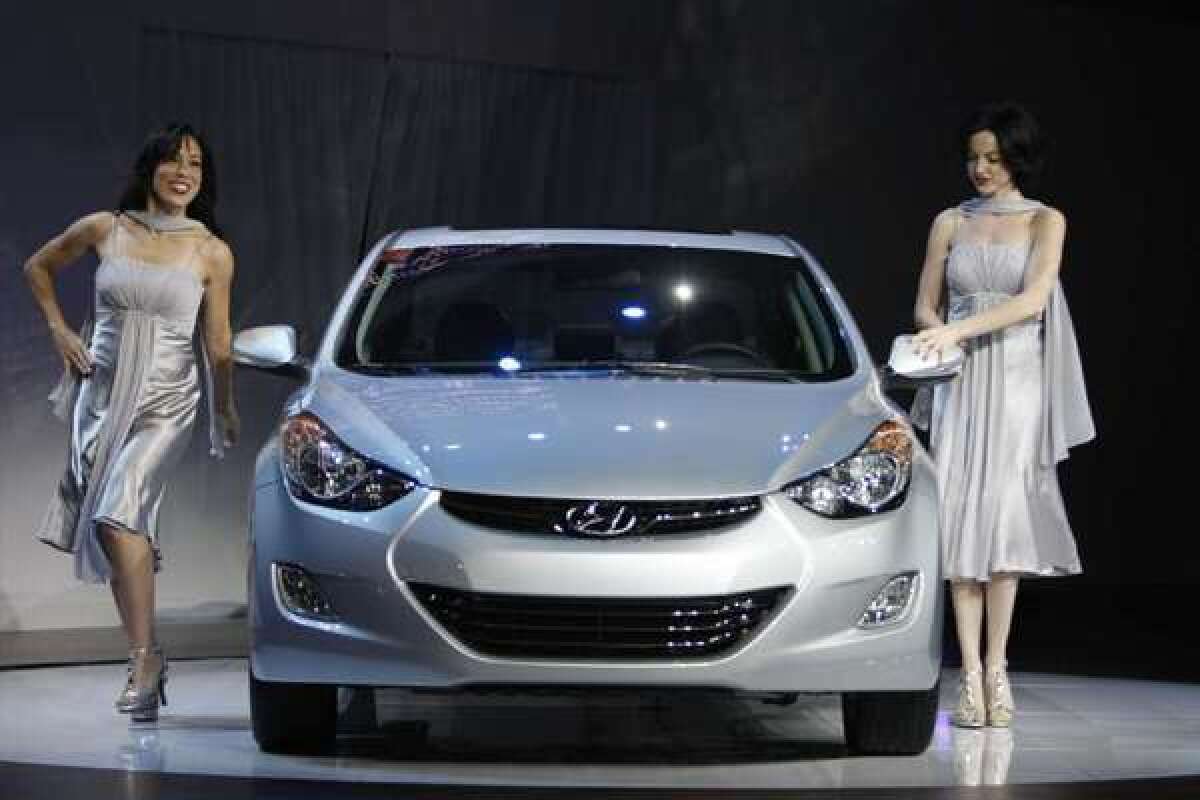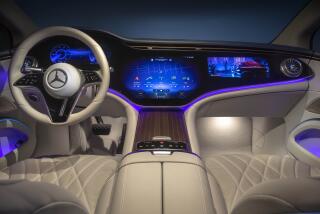Big Hyundai recall a sign of what can happen when parts are shared

When Hyundai Motor Co. and its affiliate, Kia Motors Corp., announced Wednesday that they were conducting a massive recall of 1.7 million vehicles, it was a sign of what can go wrong when parts are shared by many vehicle models.
Since the recession, according to automotive industry analysts, more and more manufacturers have turned to the economies of scale involved in having fewer vehicle platforms and more interchangeable parts and components.
“This is supposed to be the ideal for making cars now,” said Jesse Toprak, analyst for TrueCar.com. “This is how you get scale, value creation.”
Quiz: Why are California gas prices so high?
Toprak added, “It’s not just about cost savings. It simplifies production. If demands shifts from one car to another, shared parts make it much easier to shift the mix. Overall it is great for the automakers.”
But that’s when the parts don’t have potential defects. When they do, according to Alec Gutierrez, senior analyst for Kelley Blue Book, that advantage quickly turns into a recall that is much larger than it might have been years ago.
“It’s a practice that has been growing among all automakers,” Gutierrez said. “You can reduce costs by sharing parts, but you can also wind up with a potentially dangerous and expensive situation and recall.”
The Hyundai-Kia recall involves 13 models manufactured with the same brake light switches that may malfunction.
Hyundai Motor Co. is also recalling about 194,000 Elantra compacts from 2011 to 2013 to fix a separate and unrelated air bag problem.
The Hyundai brake light switch recall includes model year 2007-09 Accents and Tucsons, 2007-10 Elantras, 2007-11 Santa Fes, 2008-09 Veracruzes, 2010-11 Genesis Coupes and 2011 Sonatas.
The Kia brake light recall includes model year 2007-2010 Rondos and Sportages, 2007-11 Sorentos, 2007 Sedonas, 2010-11 Souls and 2011 Optimas.
National Highway Traffic Safety Administration documents related to the brake light switch recall said several potentially serious problems could result from a faulty brake light switch.
The problem “may cause the brake lights to not illuminate when the brake pedal is depressed or may cause an inability to deactivate the cruise control by depressing the brake pedal.”
The documents added that a faulty brake light switch “may also result in intermittent operation of the push-button start feature, affect the operation of the brake-transmission shift interlock feature, preventing the shifter from being moved out of the PARK position and cause the Electronic Stability Control (ESC) malfunction light to illuminate.”
Other experts said that Hyundai’s response will be important in whether they receive any negative blowback from consumers because of the recall.
“From our perspective, it’s not about the recall, but about how the automaker handles it,” said Eric Lyman, vice president for editorial and partner development for ALG.
Lyman said Hyundai set its own best example for its response to gas mileage results for its models that were lower than advertised. The company apologized and agreed to reimburse owners for their fuel costs.
“Hyundai should be fine if they react as well as they did then,” Lyman said.
Hyundai will notify owners, and dealers will replace the stop lamp switch, free of charge. The safety recall will begin by June 2013. Owners may contact Hyundai at 1-800-633-5151. Hyundai’s recall campaign number is 110.
ALSO:
First quarterly profit for Tesla Motors
Trucks sales get a boost from the housing market
44% would flunk a written drivers test if they took one today







